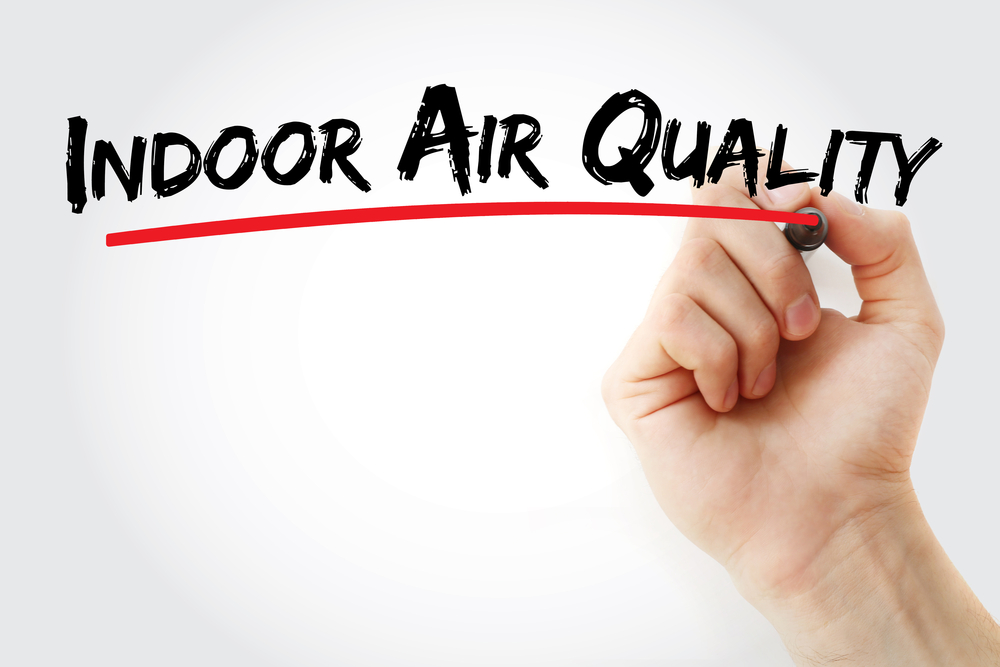Insulation And Indoor Air Quality

Indoor air quality (IAQ) has become an increasingly important topic in recent years due to the growing awareness of its impact on human health and well-being. Poor IAQ can lead to a variety of health issues, ranging from minor irritations such as allergies and headaches to more serious respiratory problems and even cancer.
One major factor that contributes to poor IAQ is inadequate insulation. Insulation is responsible for keeping the temperature of a building comfortable, but it also plays a critical role in controlling moisture and air flow.
In this article, we will explore the relationship between insulation and IAQ, as well as discussing the best practices for ensuring good IAQ through proper insulation techniques. We will also discuss how different types of insulation materials can impact IAQ and provide tips on maintaining a healthy indoor environment.
Insulation Types and Their Impact on IA
Insulation comes in various forms, such as fiberglass, cellulose, and foam. Each type has its own benefits and drawbacks when it comes to IAQ.
Fiberglass insulation is one of the most common types used in buildings due to its affordability and ease of installation. However, this type of insulation can release small particles known as respirable fibers into the air if not properly installed or maintained. These fibers can cause respiratory irritation and may even lead to lung diseases.
Cellulose insulation, made from recycled paper, is a more environmentally friendly option but can also pose IAQ concerns if it becomes wet. Wet cellulose insulation can create the perfect breeding ground for mold and mildew, which can release harmful spores into the air.
Spray foam insulation, while highly effective at sealing air leaks and providing excellent thermal performance, can also emit volatile organic compounds (VOCs) during installation. These chemicals can have negative effects on IAQ and may even cause long-term health issues if exposed to high levels.
Relationship Between Insulation and IAQ
The link between insulation and IAQ is twofold. On one hand, inadequate insulation can lead to air leaks and moisture issues, which can negatively impact IAQ. On the other hand, the type of insulation used and how it is installed can also directly impact IAQ.
As mentioned earlier, poorly installed or maintained insulation can release particles and chemicals into the air, compromising IAQ. In addition, insulation that becomes wet or damaged can create a breeding ground for mold and mildew, which can release spores and mycotoxins that are harmful to human health.
Furthermore, inadequate insulation can also lead to temperature fluctuations in a building, causing condensation on walls and ceilings. This excess moisture can create the perfect environment for mold growth, further contributing to poor IAQ.
It is important to note that even with proper insulation, it is crucial to regularly maintain and inspect the insulation in a building to ensure there are no issues that could impact IAQ.
Is insulation bad for IAQ?
While certain types of insulation can have negative impacts on IAQ, this does not necessarily mean that all insulation is bad for IAQ. In fact, proper insulation can improve IAQ by reducing air leaks and controlling moisture levels.
The key to ensuring good IAQ with insulation is to choose the right type of insulation and install it correctly. This includes properly sealing any gaps or joints, using the correct amount of insulation for the building, and regularly maintaining and inspecting the insulation.
Additionally, it is important to consider other factors that may contribute to poor IAQ such as ventilation systems, cleaning habits, and outdoor air quality. Insulation alone cannot solve all IAQ issues but working in conjunction with other measures, it can significantly improve the overall indoor air environment.
Also, it is important to keep in mind that insulation should be chosen based on the specific needs and conditions of a building. Factors such as climate, building materials, and occupant health concerns should all be taken into consideration when selecting the appropriate insulation for a building.
How to Maintain Good IAQ with Insulation
Maintaining good IAQ with insulation starts with choosing the right type of insulation for a building and installing it correctly. However, there are also other steps that can be taken to ensure healthy indoor air.
Regularly inspecting and maintaining insulation is crucial in preventing any issues that could impact IAQ. This includes checking for any signs of moisture, mold, or damage and addressing them immediately.
In addition, proper ventilation is key in maintaining good IAQ. This can include using exhaust fans to remove excess moisture from bathrooms and kitchens, as well as ensuring that there is proper air circulation throughout the building.
Keeping a clean indoor environment is also important in reducing potential sources of pollution such as dust, pet dander, and chemicals from cleaning products. Using natural and non-toxic cleaning products can also help improve IAQ.
Lastly, regularly changing air filters and having HVAC systems serviced can also contribute to good IAQ by reducing the circulation of contaminants in the air.
Does insulation need to be replaced for IAQ purposes?
While proper maintenance and inspection of insulation is important for maintaining good IAQ, there may come a time when the insulation needs to be replaced. This can be due to age, damage, or other factors that could impact its effectiveness in improving IAQ.
If insulation becomes wet or damaged, it is recommended to replace it as soon as possible to prevent mold growth and other IAQ issues. Insulation should also be replaced if it has become compressed or compacted, as this can reduce its thermal performance and create gaps where air can leak through.
Furthermore, if there have been any changes made to the building such as renovations or additions, it is important to reassess the insulation and potentially replace it to ensure it is still providing optimal IAQ benefits.
Tips for Choosing Insulation for Optimal IAQ
Here are some tips to keep in mind when choosing insulation for optimal IAQ:
- Choose insulation materials that do not contain harmful chemicals or emissions. This can include options such as fiberglass without formaldehyde binders, mineral wool, and cellulose from recycled materials.
- Consider the climate and building materials of a structure when selecting insulation. For example, regions with high humidity may benefit from insulation that also provides moisture control.
- Opt for insulation with a high R-value, which indicates its thermal resistance and effectiveness in reducing heat flow.
- Proper installation is key. Make sure to follow manufacturer instructions and seal any gaps or joints properly to prevent air leaks.
- Regular maintenance and inspection are crucial for ensuring optimal IAQ benefits from insulation. Stay on top of any potential issues and address them promptly.
By considering these factors, you can choose insulation that not only provides energy efficiency but also contributes to a healthy indoor environment.
Contact Koala Insulation for IAQ-friendly Insulation Services
Choosing the right insulation for optimal indoor air quality (IAQ) can be a daunting task, but it is crucial for maintaining a healthy and comfortable living space. At Koala Insulation of SW Chicago, we understand the importance of IAQ and offer expert insulation services to help you achieve it.
Our team of experienced professionals is knowledgeable in all types of insulation materials and will guide you in selecting the best option for your specific climate and building materials. We prioritize eco-friendly options such as de binders, mineral wool, and cellulose from recycled materials, ensuring that our insulation not only improves energy efficiency but also promotes sustainability.
Our services include blown-in attic insulation, spray foam insulation, air sealing, insulation removal and more. We also offer solar-powered attic fans to further improve indoor air quality by reducing moisture and preventing mold growth.
We provide services in Chicago ridge, oak lawn, hometown, palos heights, worth and many more areas in SW Chicago. Our team will arrive promptly and work efficiently to minimize disruption to your daily routine. And when we're finished, we make sure to leave your space clean and tidy.
Call Koala Insulation of SW Chicago today at (708) 722-4535 and get started on improving your IAQ. You can also book an appointment online or get pre-approved for project financing in under 2 minutes.
FAQs
How does properly installed insulation contribute to better indoor air quality?
Properly installed insulation plays a vital role in maintain consistent temperatures within a building, which can significantly reduce the intrusion of outdoor air pollution, including outdoor dust and pollutants. By creating a stable indoor environment, insulation helps to minimize the conditions that allow air pollutants to enter and persist within indoor spaces.
Can insulation affect the efficiency of air conditioning systems in improving indoor air quality?
Yes, insulation directly impacts the efficiency of air conditioning systems by reducing heat gain from the outside environment. This allows air conditioning systems to operate more efficiently, ensuring that they can effectively filter and circulate fresh air throughout the building. As a result, the indoor air quality is improved by reducing the levels of pollutants and maintaining a comfortable indoor temperature.
Why is it important to consider outdoor air pollution when thinking about indoor air quality?
Outdoor air pollution can significantly affect indoor air quality as pollutants from outside can enter buildings through open windows, doors, and even small openings or leaks if insulation is not properly installed. These pollutants can include particulate matter, chemicals, and outdoor dust, which can degrade the indoor air quality. Therefore, considering outdoor air pollution is crucial for effective indoor air quality management.
How do consistent temperatures achieved by proper insulation improve indoor air quality?
Maintaining consistent temperatures indoors, through proper insulation, helps prevent the formation of condensation and mold growth, both of which can negatively impact indoor air quality. Additionally, consistent temperatures reduce the need for frequent adjustments to heating and cooling systems, which can circulate and introduce outdoor pollutants. By keeping indoor temperatures stable, properly insulating a building contributes to a healthier indoor environment by minimizing the influx of outdoor pollutants and maintaining optimal humidity levels.
Conclusion
In conclusion, upgrading your home's insulation not only helps you save money on energy bills but also has a significant impact on your health and comfort. In addition to reducing outside noises and your carbon footprint, proper insulation can improve IAQ by preventing dirty air from entering your home.
When choosing an insulation provider, remember to prioritize those who offer eco-friendly options and have years of experience in the industry. With Koala Insulation of SW Chicago, you can rest assured that your insulation needs will be met with efficiency, expertise, and professionalism.
Find Your Location


Get a quote


